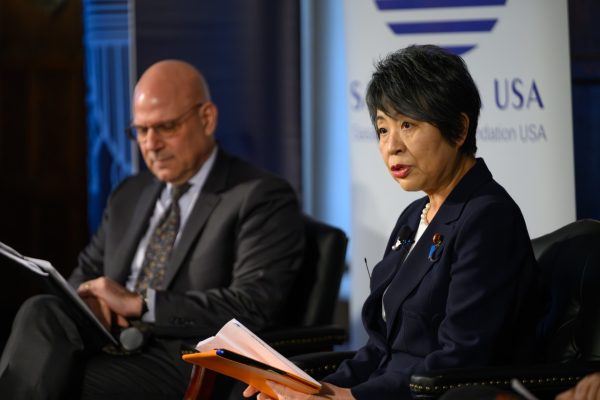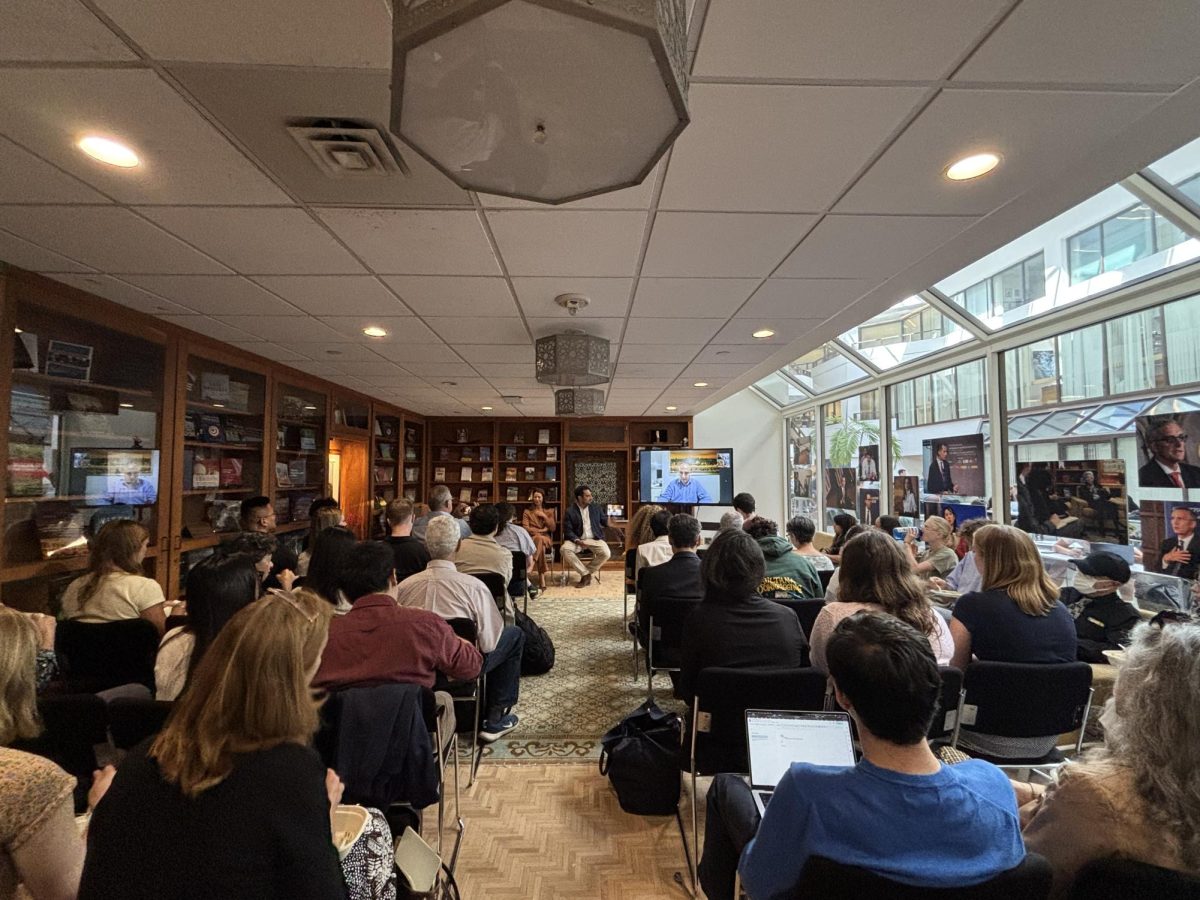The Georgetown Institute for Women, Peace and Security (GIWPS) celebrated the 25th anniversary of a United Nations (UN) resolution advancing gender-based justice during times of conflict at an event Jan. 16.
The event commemorated United Nations Resolution 1352, which the UN passed in 2000 to adopt a women, peace and security (WPS) framework to armed conflict, which considers the disproportionate impact such violence has on women and girls and emphasizes their role in peacebuilding. Titled “From Resolution to Revolution,” the event featured panels and speeches from government and nonprofit leaders, including Bineta Diop, special envoy of the chairperson of the African Union Commission on Women, Peace and Security; Shigeo Yamada, the Japanese ambassador to the United States; and Avila Kilmurray, a peacebuilder in Northern Ireland.
Vjosa Osmani-Sadriu, the president of Kosovo, said the WPS framework works toward establishing a more just world where women are at the center of decision-making and peacebuilding.
“The WPS agenda is about more than addressing past injustices — it’s about building a future where women are not sidelined but lead at the peace table in government and in the decisions that shape our world because, as we know, no peace can last if half the population is excluded,” Osmani-Sadriu said in recorded remarks during the event.

Kosovo adopted a national action plan for the WPS framework in 2014 and Osmani-Sadriu has been a leader in including women and considering gender in peacebuilding efforts after the Kosovo War in 1998-99.
Melanne Verveer, executive director of GIWPS, awarded Yoko Kamikawa, Japan’s former minister for foreign affairs the 2025 Trailblazer Award, which honors individuals working to create peace, during the event.
In accepting the award, Kamikawa said forging global networks is the key to achieving lasting peace that foregrounds women.
“Our mission related to WPS is very heavy,” Kamikawa said during the event. “But if we shake hands and network with each other beyond the boundaries, we can carry the heavy burden and develop a new world together in solidarity. I am one of you — we walk the same pace.”
Geeta Rao Gupta, former United States ambassador-at-large for global women’s issues, said the WPS framework is particularly relevant as the world faces a level of armed conflict unprecedented in the modern era.
“At a time when the world is dealing with so many conflicts — more conflicts than we’ve ever experienced since World War II — it behooves us to think long and hard about what it will take to implement this right from the start,” Gupta said during the event. “How do we make it not the exception but the rule that women’s voices are brought into these discussions from the moment a conflict begins?”
Osmani-Sadriu said Kosovo’s law granting reparations to victims of sexual assault during the 1998-99 war that led to Kosovo splitting from Serbia acts as a model for how countries can support women in the transition to peace.
“These reparations are more than financial assistance,” Osmani-Sadriu said. “They are a national acknowledgment, a commitment to recognizing their pain and honoring their strength. It’s a moral promise to say, ‘We see you, we stand with you, and we will never forget, and we will never stop seeking justice.’”
Aaliyah Ibrahim (GRD ’27), who attended the event, said she feels it is essential that women are included in decision-making during conflict and peacebuilding.
“My main takeaway is that this should not even have to be a question,” Ibrahim told The Hoya. “It should not be a second thought that women are missing from the table or the rooms in which decisions about their lives are being made.”
Ema Eguchi (SFS ’27), another attendee, said the speakers inspired her to look toward a better future for women’s rights.
“Right now, a lot of times people are less hopeful about women’s rights, but being able to see how there are many efforts globally being done and these women are forging a path was inspiring,” Eguchi told The Hoya.
Gupta said countries must welcome women as leaders to achieve lasting peace after armed conflicts, which she said requires politicians to adopt the WPS framework.
“My dream is that it will be second-nature for people who are in power — who typically are men — within governments to immediately put in place to immediately, as soon as they know there is tension in the country or a conflict has broken out, bring together the women of that country to advise and inform the foreign policy decision, the defense decisions that have to be taken to respond to a conflict,” Gupta said.








